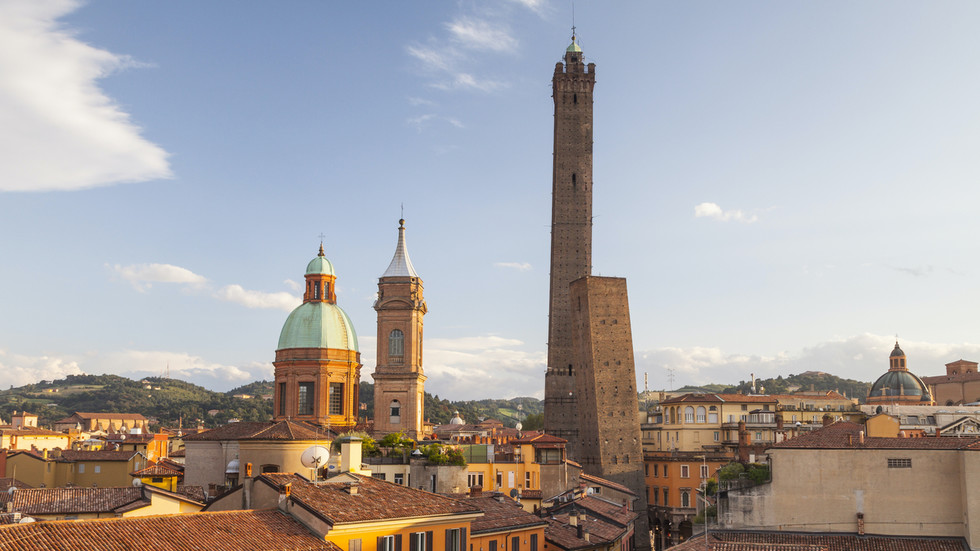
One of Bologna’s 12th-century “twin towers” is destabilizing alarmingly, according to researchers monitoring it

© Getty Images / Julian Elliott Photography
One of Italy’s “twin towers,” a symbol of the northern city of Bologna, is in danger of “sudden and unexpected collapse,” according to authorities there, who have unveiled a plan to stabilize it.
A protective cordon will be built around the 48-meter (157-foot) Garisenda tower, built in the 12th century in the city center alongside its neighbor the 97-meter (320-foot) Asinelli, in order to “contain debris resulting from a possible collapse, to reduce the vulnerability of surrounding buildings and the exposure to the population, as well as blocking access,” Bologna’s city council said in a statement on Friday.
The work, triggered by a “high alert” from the scientific committee that has surveilled the precarious landmark since 2019, has preempted existing consolidation efforts, with the need for an “exclusion zone” to be constructed as soon as possible. Accordingly, tourist entry to the neighboring Asinelli tower has been curtailed.

Read more
The danger of collapse was outlined in a 27-page report released by the committee. “Safety conditions no longer exist to operate on or around the tower, except within the framework of a civil protection plan,” the experts claimed, citing an “unexpected and accelerated trend” of “crushing” to the tower’s base, causing disintegration and cracks in its base.
The tower has been in “inescapably critical condition for some time,” the report, published earlier this month, noted, suggesting that previous efforts to improve its stability actually made things worse “with worrying implications for the overall stability of the tower.”
However, a spokesperson told CNN that while they are preparing for the worst, “nobody knows when [the collapse] could be – it could be three months, ten years, or 20 years.” Classifying the shifting tower as a “yellow” rather than “red” alert, they explained that “if there was an imminent risk of collapse, we’d evacuate everyone.”
Garisenda’s growing instability was discovered due to acoustic sensors installed in October, which not only found increased compression near the foundation but also that the direction of its “lean” has shifted almost 90 degrees. The situation has deteriorated alarmingly since July, according to the city council, which blamed the summer’s “extreme weather events,” including high temperatures and flooding.
The city hopes to complete the emergency cordon by February, but has yet to settle on a plan to permanently stabilize the tower, whose lean is only one degree less than the more famous ‘leaning tower’ in Pisa, also built in the 12th century.
Built along with dozens more like them by local families who saw tower height as a status symbol, the Garisenda and Asinelli are among the few that remain. The Garisenda, which has leaned since it was built, was immortalized in a poem by Dante and both towers are seen as symbols of the city.




